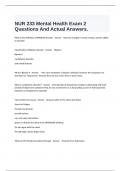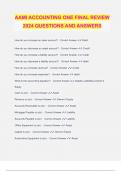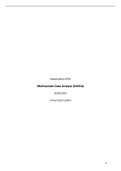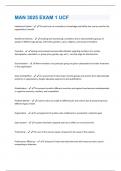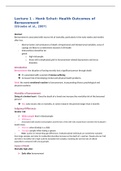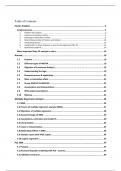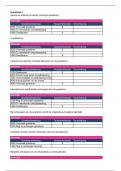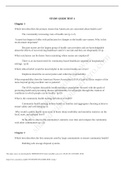Exam (elaborations)
NUR 233 Mental Health Exam 2 Questions And Actual Answers.
- Course
- Institution
What is the definition of BIPOLAR disorder - Answer Extreme changed in mood, energy, and the ability to function Classification of Bipolar disorder - Answer Bipolar I Bipolar II Cyclothymic disorder and mixed features What is Bipolar II - Answer - Has same symptoms of bipolar I di...
[Show more]
